Graham Reid | | 7 min read
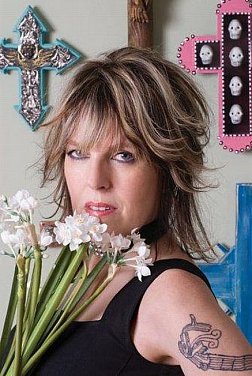
Almost 20 years ago on her self-titled album, Lucinda Williams sang Am I Too Blue, a penetratingly drained song about loneliness and self-doubt. If it hadn’t been for some flashes of jangling pop and a few light-hearted romps in the intervening years, the essence of Am I Too Blue and its honest weariness might stand as Williams’ signature emotion in an impressive if small body of work, now spread over five albums.
Five albums in almost two decades is hardly a carelessly productive career. Yet her often simple but layered lyrics set to memorably spare melodies has been acclaimed by her growing legion of fans and, increasingly, the music business.
In 98 she won a Grammy (best contemporary folk album) for Car Wheels on a Gravel Road which topped the Village Voice Critics Poll of that year, as well as appearing in any number of “best of” lists. Three years later she picked up the award for best female rock performance for Get Right With God from her Essence album.
Folk, rock, alt.country and blues are all categories Williams inhabits. But whatever genre she is adopted by few doubt that despite the lengthy gestation period between albums (Car Wheels was recorded, scrapped and started again) the results are singular.
Her albums can be melancholy however: mortality, disconnection, ennui and despondency are her subjects, although her work has such a powerful emotional content and her languid vocal style is so distinctive that it has been influential on a generation of female singers. However Williams’ songs stands apart for their intensity, gravitas and lyrical refinement. 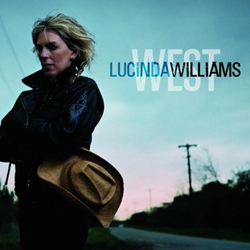
Her new album West is suffused in sadness, born of a relationship break-up and the death of her mother in early 2004. After a long layoff she poured her emotions into dozens of songs, some of which appear on West.
As always however there are songs which don’t follow that path: like the swirling and sassy nine minutes of Wrap My Head Around That; and the nasty, sexually steamy Come On which recalls early Dylan in it’s bitter skewering of a former lover.
“That person doesn’t know it was about him and by the time he’s figured it out it’s too late,” she laughs. “The pen is mightier than the sword, so look out. Here I come with my mighty pen!”
And she laughs again, relieved perhaps to be asked about something other than the pall cast over her life in recent times.
“I’ve been talking about her death with the release of the album,” she says. “I’ve found myself talking about it for the first time. For me [music] has provided a real outlet, and even though the songs are dealing with uncomfortable and painful feelings there is a sense of redemption about them.
“It is part of growing, and when I went in with [producer] Hal Willner I wanted to make a mature yet hip record, because some people don’t equate maturity with hipness.”
Acknowledging she is older now -- she turned 54 a fortnight ago -- she wants to be hip in the manner of Marianne Faithfull, Chrissie Hynde and Patti Smith. It was no coincidence then she was drawn to Willner: he produced Faithfull’s critically acclaimed Strange Weather album in 87, albums by Lou Reed and guitarist Bill Frisell (who appears on West), and a series of all-star tribute albums to Italian composer Nino Rota, jazz musicians Thelonious Monk and Charles Mingus, and Leonard Cohen.
“He brought a lot of influences in, and that made the big difference.”
But she and Willner circled each other cautiously, she says. She sang Gentle on my Mind for the soundtrack and closing credits of the Will Farrell movie Talladega Nights which Willner produced with his long-time engineer Eric Liljestrand. Then she signed on for Willner’s sea shanty project Rogues Gallery, again with Liljestrand.
Convinced by these sessions they could work together, Williams came to them with 25 songs in demos or rough mix form which she had recorded in early 2005.
“We stripped them down to just my vocal and guitar and built everything up around that. One of the special things about the record is all the vocals are from the original demos.”
Given what she was going through at the time of putting those songs on tape it is hardly surprising West feels as emotionally raw as it does.
 There is another key player in this equation, the album’s executive producer and Williams’ new fiancé Tom Overby, director of marketing and international A&R for Fontana, the independent distribution arm of Universal Music.
There is another key player in this equation, the album’s executive producer and Williams’ new fiancé Tom Overby, director of marketing and international A&R for Fontana, the independent distribution arm of Universal Music.
“Yeah, he’s a record company guy, can you believe it?” she laughs. “Who would have thought?
“I’ve been through some pretty bad dry spells as I writer, I went through one where I didn’t write anything new for five years. When that’s happened it has been where I was in difficult relationships. It got to the point where I didn’t know if I was going to able to find anyone I could live with and still be able to write.
“I’ve tended to lose myself in the relationship. It wasn’t necessarily the other person’s fault but for whatever reason it just didn’t work and I would shut down creatively. 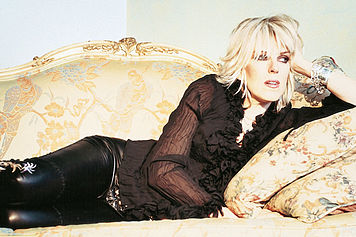
“When I met Tom that was one of the big tests for me, to see if I could be in a relationship and yet still be free and able to write. And for the first time it worked.
“He passed the test.”
Because they are both music people they feed each other: she has learned more about the business and been introduced to music by the Thievery Corporation and Gotan Project, and he has learned more about the artist’s perspective. They intend to be married later this year, “but the album has taken precedence”.
Given her current happiness, West could be read as a reflection on her recent past: the aching opener Are You Alright? was written for her brother with whom she has become estranged since their mother’s death; Learning How To Live is about coping with loss; Where Is My Love? and Unsuffer Me are naked pleas for liberating love; and on Words she considers the strength of language but nails in another message which she discusses with alarming candour.
“The person inside the song is dealing with one of those situations you find yourself in when you are in the wrong relationship and there is yelling and someone is verbally abusing you.
“It’s about the victim finding salvation and shelter within her words. She can go to that place that nobody can touch, and her songs can become a way of vindication.
“You have to be able to become the subject of the song to have the passion for the subject. But even when I’m writing in the third person I’m always writing about myself.“
Living back in Los Angeles these past five years after a long time in Nashville, she is among friends she knew when she lived there 20 years ago. Happily engaged, and reconciled to the death of her beloved mother, Williams is entering a new phase of her life.
West may be an album borne from pain, and in places sounding it, but she has written songs since being with Overby which she can’t wait to record.
They should be interesting because, in her personal life at least, Lucinda Williams just doesn’t sound too blue anymore.
This interview appeared in the New Zealand Herald, February 2007 on the release of Williams' album West. www.nzherald.co.nz
Lucinda Williams: West (Lost Highway) reviewed
Although saturated in the sadness which has affected her in recent years -- the break-up of a relationship, the death of her mother -- it would be unwise to presume that everything here has turned on those events: Williams is too smart and too poetic a writer to be quite that literal.
That said she concedes the opener Are You Alright? was directed to her brother who cut himself off emotionally from the family after his mother’s death; and Learning How to Live and Unsuffer Me might seem to be prompted directly by the tenor of her times.
Inevitably Williams here sounds more emotionally bruised and world-weary than ever -- and a sensual languor to the point of ennui has often been her style -- so newcomers might find West, with a couple of exceptions, a bit too melancholy if not downright glum for their taste.
But it is so heartfelt, and so right there on the surface and yet penetratingly deep, that you cannot help but be moved by it. Songs like Rescue (“he can’t rescue you, can’t pull the demons from your head”) are confessionals but also have a universal quality.
Those that break the pace of simple and direct lyrics delivered from that place we retreat into when the pain is too much are the acerbic Come On which rocks with anger at a former lover, and the nine minute swirling Beat-like poem Wrap My Head Around That which crackles with saucy, adult indignation and lyrical twists.
Set in simple music beds by producer Hal Willner who has wisely left the naked emotion in the foreground, the other players here (guitarist Bill Frisell, Jayhawk Gary Louris and Doug Pettibone among them) are kept in check and the result is a sonic parallel to that weary state.
Despite the clouds hanging over this, West is also a surprisingly powerful -- and empowered -- album and the title track at the end blows through an air of optimism and a glimpse of the possibilities of happiness.
Most telling is Words, the track in which she says that words will remain her loyal companion despite the setbacks -- and for those who admire this singer-songwriter that is good news indeed.
Not the easiest album Williams has made, but certainly alongside her very best in an impressive body of work.

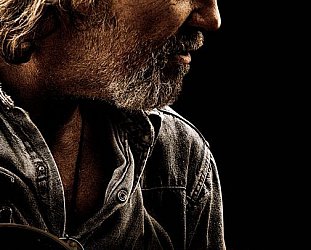
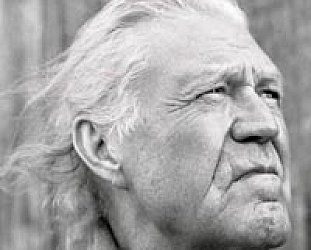
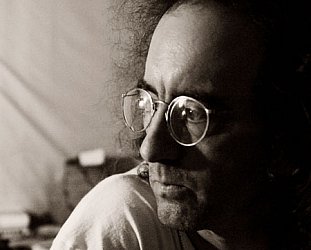



post a comment